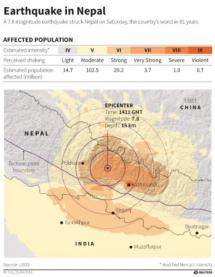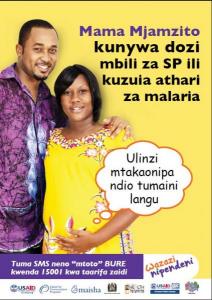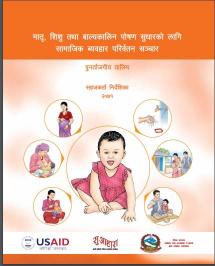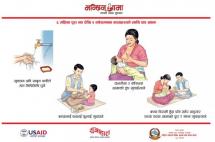Suaahara Jingles
Suaahara was a five year (2011-2016) project funded by USAID aimed to improve the nutritional status of women and children in 41 districts of Nepal. The project focused on improving health and nutrition behaviors at the household level through promotion of Essential Nutrition and Hygiene Actions (EN/HA), particularly Maternal, Infant and Young Child Nutrition (MIYCN), and addressing other determinants of under-nutrition, such as availability of and access to food, hygiene, quality of health care, child spacing and socio-cultural factors including gender and marginalization.
Suaahara was implemented by a consortium of partner organizations led by Save the Children.
Suaahara developed and implemented the integrated Bhanchhin Aama (“Mother knows best”) cohesive platform which linked varied messages and reinforced recommended actions through a wide array of channels including mass media (radio programs, radio spots and billboards), print, and social mobilization. The SBCC strategy established an internal quality materials review and production system to ensure that all partners in the consortium had mutually reinforcing, quality materials developed, pretested, produced and disseminated to the end user.
Suaahara developed and broadcasts jingles focusing on Suaahara key messages in Suaahara implementing 41 districts through 90 local FM stations and one national radio station “Radio Nepal”. Jingles were developed in Nepali, Awadhi and Doteli languages in order to reach specific audiences by ecological regions – Mountain, Hill and Terai.
- Jingle on Caring of Sick Child
- Jingle on Handwashing with Soap and Water
- Jingle on Importance of Egg (complementary feeding for baby completes 6 months)
- Jingle on Management of Child Feces
- Jingle on Hygiene- Keep away child from dirt
Source: Johns Hopkins Bloomberg School of Public Health/ Center for Communication Programs
Date of Publication: March 25, 2019









